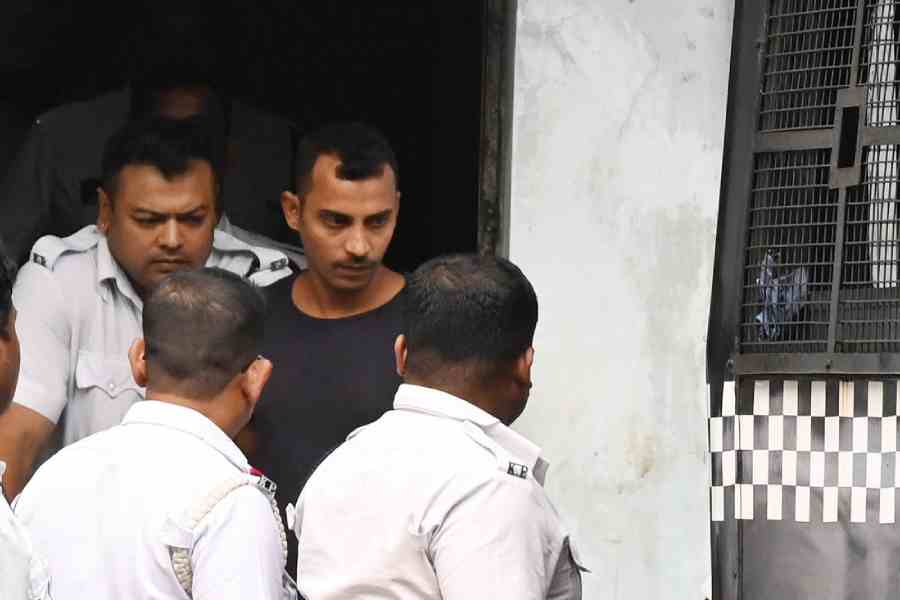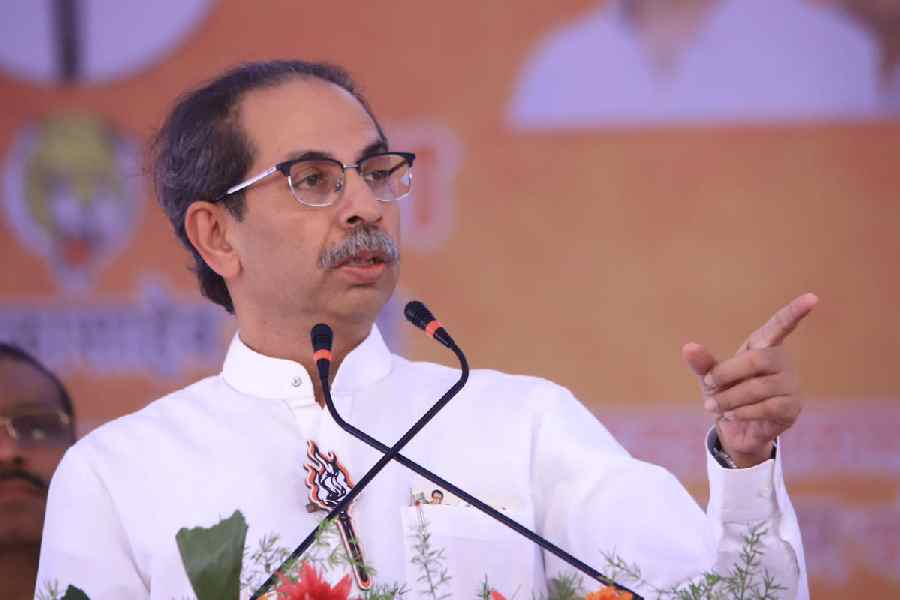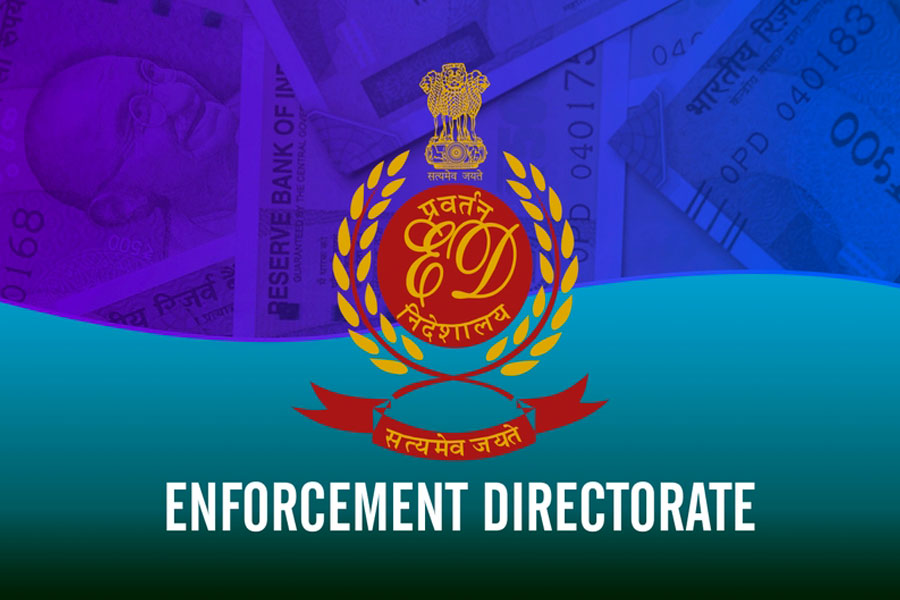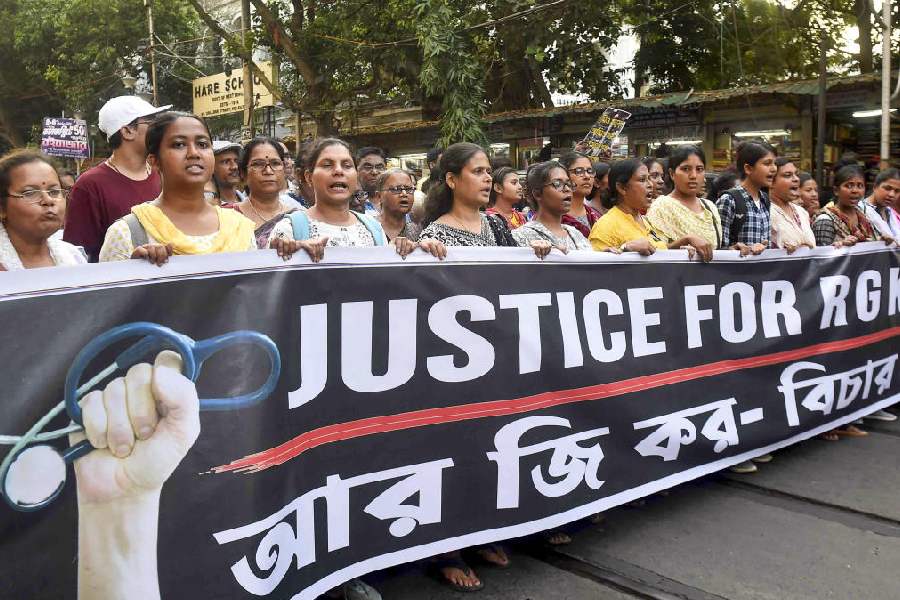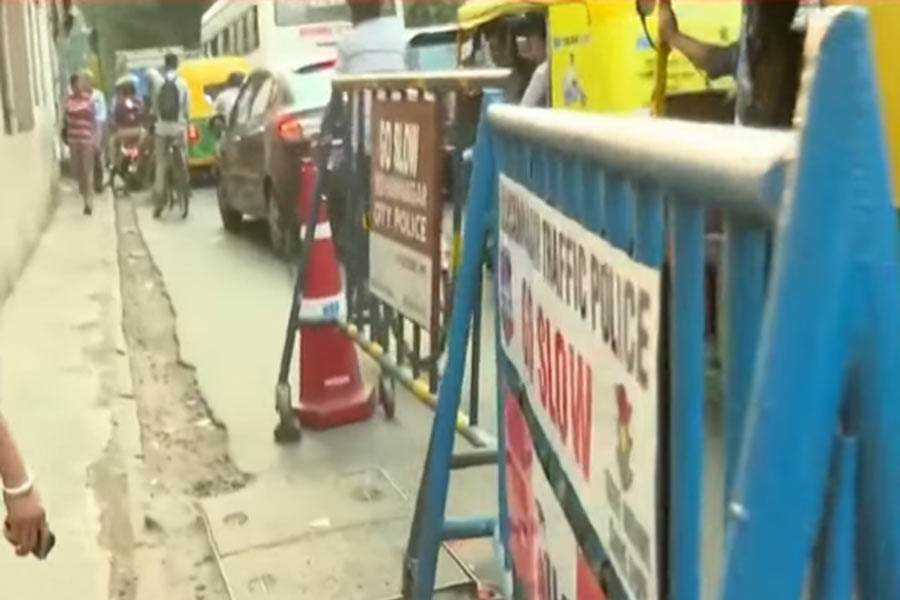The recruitment of civic volunteers in Bengal was initiated 13 years ago based on a state government order that envisioned engaging youths from the locality who would have better knowledge about the neighbourhood while also generating employment, the state government has said in an affidavit to the Supreme Court.
The lone accused in the rape and murder of a junior doctor at RG Kar Medical College and Hospital is a civic volunteer who worked for Kolkata Police. Prime accused Sanjay Roy’s alleged role in the crime and unrestricted access to a government hospital drew the apex court’s attention. The court had asked the state to file an affidavit.
In the affidavit filed on Thursday, a state official said, the Bengal government has referred to three administrative orders, the last one from 2017, as the basis for the recruitment of civic volunteers.
The sanctioned strength of civic volunteers is 1,30,000 in Bengal. Around 100,000 civic volunteers are at work now.
“West Bengal being one of the most densely populated states in the country, it was decided to induct civic volunteers from the same area to work alongside police authorities to assist the police as they are aware of the locality and (are) in a better position to address the needs of the community. This would also create livelihood in the said areas,” the official quoted the affidavit as saying.
The first government order was passed on September 27, 2011, initiating the enrolment of civic volunteers in the police commissionerates of Howrah and Asansol-Durgapur.
The second government order cited in the affidavit is dated February 28, 2013, where the state approved the enrolment of 130,000 civic volunteers.
The third order, dated June 19, 2017, mentioned the continuation of the enrolment of civic volunteers.
The official said the affidavit mentioned in detail the process of recruitment and the minimum eligibility required of a civic volunteer.
The candidate should be a resident of the local police station area, should be aged between 20 and 30 at the time of enrolment, should have cleared Class X, should be mentally fit, and should not have any criminal case against him or her.
Roy, however, had a case of domestic violence against him. His example suggests that some of the eligibility criteria may have been overlooked during recruitment.
The affidavit lists the responsibilities of a civic volunteer, which include helping the police manage traffic, handle major festivals, manage vehicle parking, and ensure public safety.
“It has been categorically mentioned that civic volunteers cannot be engaged in law-enforcement duties,” said an advocate who is privy to the contents of the affidavit.
The civic volunteers were initially entitled to a daily honorarium of ₹141.81. In 2017, the amount was revised to ₹5,500 a month. Later, this was raised to ₹9,000 a month.
On April 1, 2024, the monthly remuneration for civic volunteers, under both the Bengal and city police, was increased to ₹10,000 a month.
The Supreme Court had expressed doubt whether such personnel could be allowed into health facilities and educational institutions, where there are many young and vulnerable women.
According to the state government official, the affidavit suggests that some civic volunteers are still deployed in government health facilities and educational institutions across Bengal.
The affidavit says the state has begun a three-month training programme for civic volunteers and is preparing “comprehensive guideline(s)” for them.
The experience with civic volunteers has so far been a mixed bag for the people of Bengal. They play a crucial role in managing traffic and other public events but they have often been accused of taking up the role of the police without authority or training.

